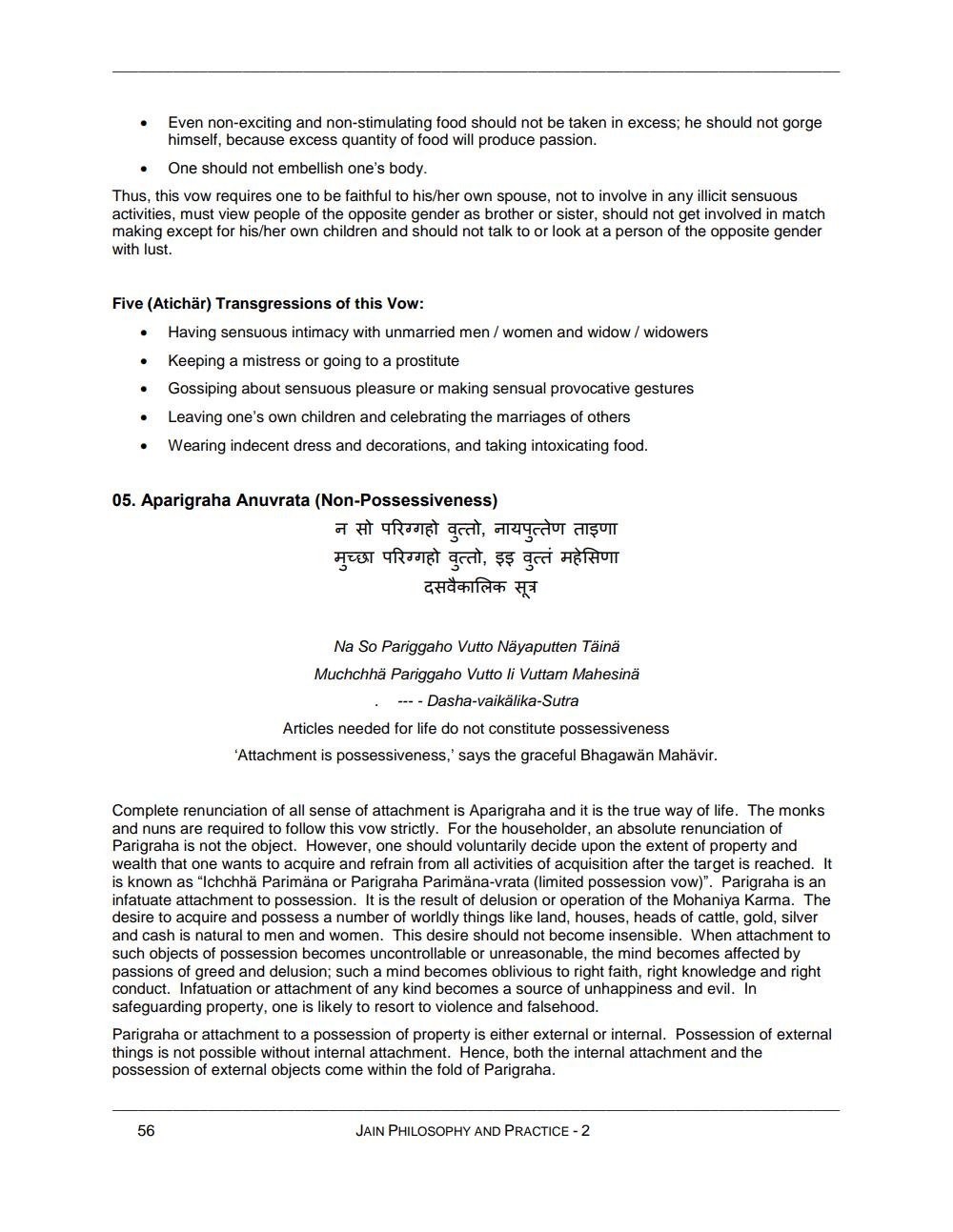________________
Even non-exciting and non-stimulating food should not be taken in excess; he should not gorge himself, because excess quantity of food will produce passion.
One should not embellish one's body.
Thus, this vow requires one to be faithful to his/her own spouse, not to involve in any illicit sensuous activities, must view people of the opposite gender as brother or sister, should not get involved in match making except for his/her own children and should not talk to or look at a person of the opposite gender with lust.
·
Five (Atichär) Transgressions of this Vow:
•
•
•
•
Having sensuous intimacy with unmarried men/women and widow / widowers
Keeping a mistress or going to a prostitute
Gossiping about sensuous pleasure or making sensual provocative gestures
Leaving one's own children and celebrating the marriages of others
Wearing indecent dress and decorations, and taking intoxicating food.
05. Aparigraha Anuvrata (Non-Possessiveness)
56
न सो परिग्गहो कुत्तो, नायपुत्तेण ताइणा मुच्छा परिग्गहो वृत्तो, इइ वृत्तं महेसिणा दसवैकालिक सूत्र
Na So Pariggaho Vutto Näyaputten Täinä Muchchhä Pariggaho Vutto li Vuttam Mahesinä
---- Dasha-vaikälika-Sutra
Articles needed for life do not constitute possessiveness 'Attachment is possessiveness,' says the graceful Bhagawän Mahävir.
Complete renunciation of all sense of attachment is Aparigraha and it is the true way of life. The monks and nuns are required to follow this vow strictly. For the householder, an absolute renunciation of Parigraha is not the object. However, one should voluntarily decide upon the extent of property and wealth that one wants to acquire and refrain from all activities of acquisition after the target is reached. It is known as "Ichchhä Parimäna or Parigraha Parimäna-vrata (limited possession vow)". Parigraha is an infatuate attachment to possession. It is the result of delusion or operation of the Mohaniya Karma. The desire to acquire and possess a number of worldly things like land, houses, heads of cattle, gold, silver and cash is natural to men and women. This desire should not become insensible. When attachment to such objects of possession becomes uncontrollable or unreasonable, the mind becomes affected by passions of greed and delusion; such a mind becomes oblivious to right faith, right knowledge and right conduct. Infatuation or attachment of any kind becomes a source of unhappiness and evil. In safeguarding property, one is likely to resort to violence and falsehood.
Parigraha or attachment to a possession of property is either external or internal. Possession of external things is not possible without internal attachment. Hence, both the internal attachment and the possession of external objects come within the fold of Parigraha.
JAIN PHILOSOPHY AND PRACTICE - 2




